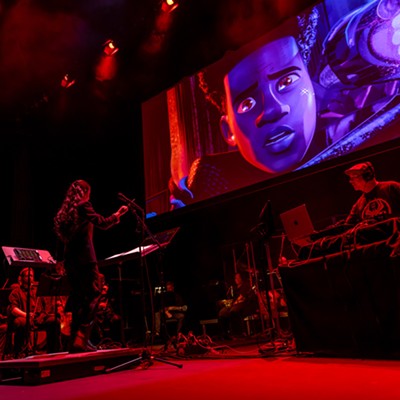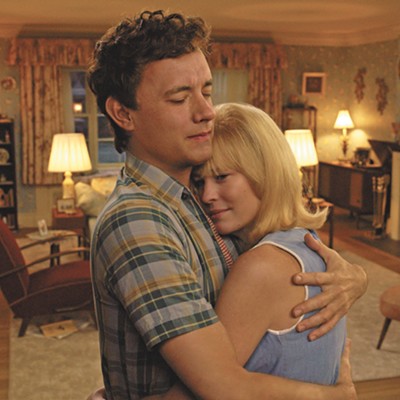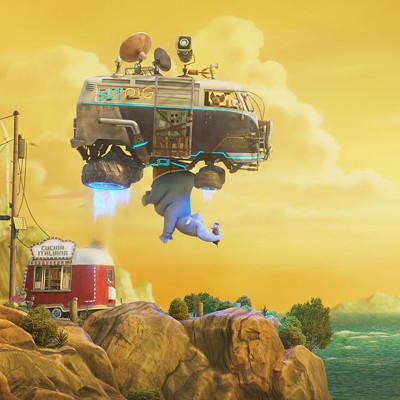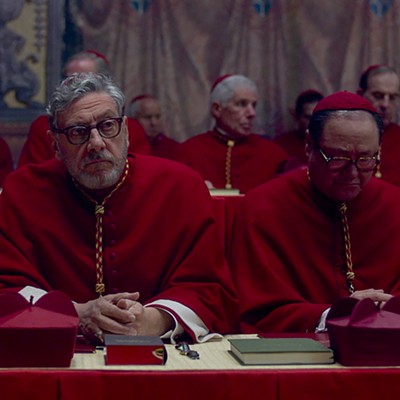At first, Will seems like a good father.
Leave No Trace begins with Will (Ben Foster) on what looks like it could be an extended camping trip with his 13-year-old daughter Tom (Thomasin Harcourt McKenzie), sleeping in a tent in the woods, starting fires with flint and steel, catching rainwater to drink, cooking up mushrooms they find among the trees. But it soon becomes clear that this not a fun father-daughter vacation: This is how they live, away from civilization, always in fear of being discovered and captured by the police (because living as they do, on the grounds of a public park, is illegal).
Director and co-writer Debra Granik (working from the novel My Abandonment by Peter Rock, based partially on a true story) balances those delicate sympathies throughout Leave No Trace, which never passes judgment on Will despite his decisions that seem disastrous for his daughter's future.
Even as they're hiding out in the park, Will and Tom take trips into the nearby city of Portland, Oregon, to stock up on groceries and for Will to check in at the Veterans Affairs hospital. He's clearly suffering from some sort of post-traumatic stress disorder, although Granik leaves out details of his service experience, and Will isn't interested in talking to counselors or taking his prescribed medication, which he sells so that he and Tom have some extra cash.
Once the authorities inevitably catch up with them, Will and Tom bounce from one fragile living situation to another, and each time that things seem to be settling down for them, Will insists that they go back on the run. It's clear that he cares deeply for his daughter, and the movie never hints at anything inappropriate in their relationship (even if some social workers raise those suspicions). But it's also clear that he's forced her to mold her entire life to his needs, counting on her unconditional love for him to override her desire for stability and connections with other people.
Foster is a mumbly, closed-off actor, which fits with the mumbly, closed-off Will, although Foster's performance makes it as tough for the audience to connect with Will as it is for the people he encounters. McKenzie, a New Zealand actress making her American debut, is the film's real anchor, giving a moving performance as a young woman forced to grow up too soon, much like Jennifer Lawrence did in Granik's breakout 2010 film Winter's Bone. McKenzie conveys Tom's mix of love and resentment for her father with hushed intensity, while Tom's own personality and independent desires emerge over the course of the movie.
Trace is Granik's first narrative feature since Winter's Bone, and it's a much calmer, more sedate movie, but that doesn't mean there isn't just as much at stake for the characters. At times the pacing can seem a bit too slow and meandering, but that gives the emotional crescendos more power, especially as the rift between Will and Tom grows.
Granik and cinematographer Michael McDonough capture the lush beauty and peaceful isolation of the Pacific Northwest wilderness where Will and Tom take refuge, and the movie immerses the audience in this society of people on the margins. Many of them have been forgotten, while others are hoping to escape, yet almost all of them are open to offering Will and Tom a helping hand, whether they ask for it or not. All of the movie's relationships, even those that last for a single scene, are quietly affecting, and Granik understands how the hardest part of loving someone may be realizing that you have to let them go. ♦






















